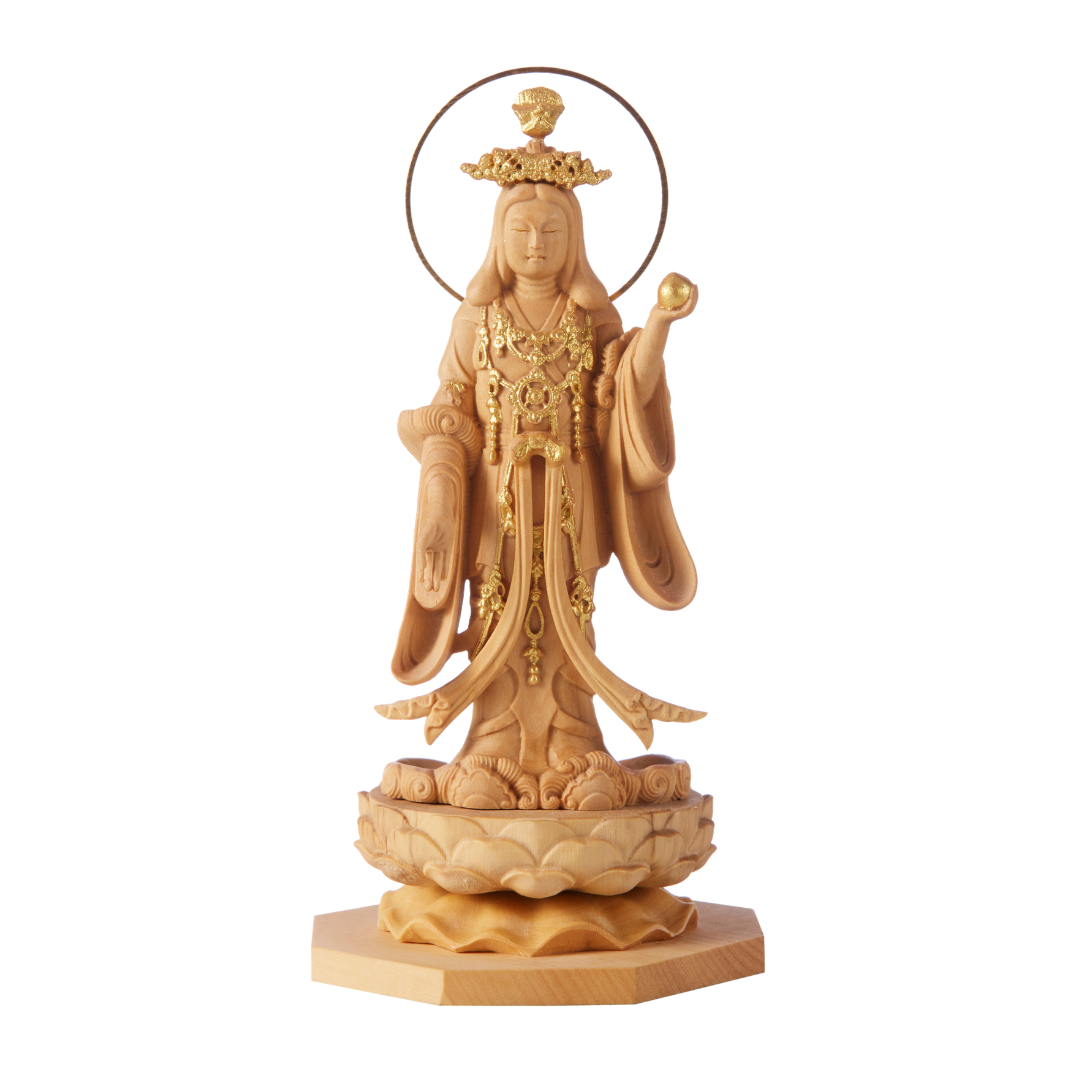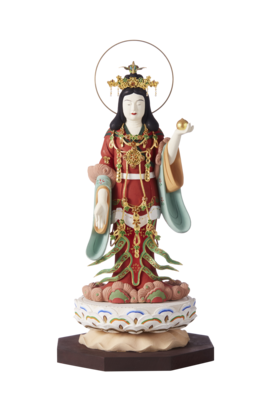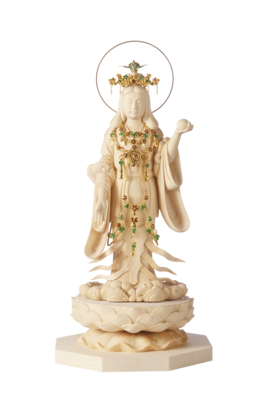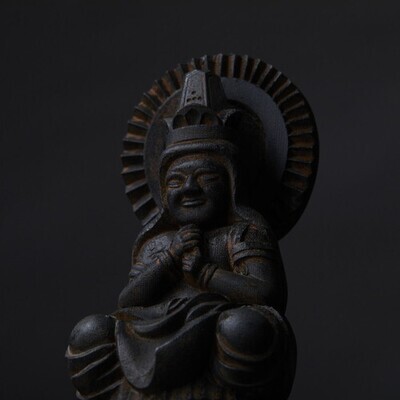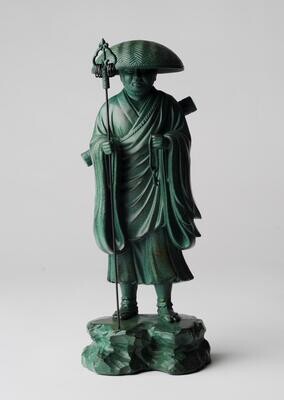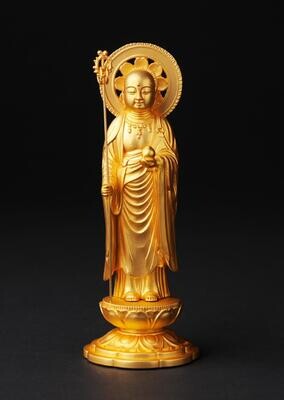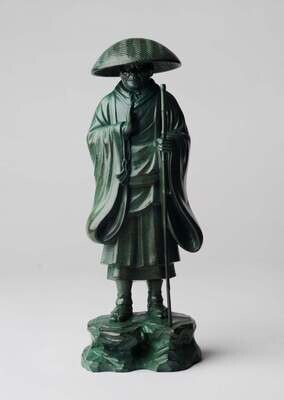Kissyo-ten (吉祥天)
As the word kissho (auspicious) suggests, this is a goddess that represents prosperity and good fortune, and she is also revered as a symbol of beauty. Her dance is said to be an auspicious sign that brings abundant harvests and is still performed as the Gosechi no Mai dance at every ceremonial occasion in the palace. As the wife of Bishamonten, she protects the northern area as a family together with Zennishi Doji, the youngest of their five sons.
Saraswati, also known as 吉祥天 (Jíxiáng Tiān) in Chinese, is a highly revered goddess in both Hinduism and Buddhism. She initially appeared as a Hindu goddess and was later incorporated into Buddhism. Her name, "Saraswati," is derived from the Sanskrit words meaning "flowing water" or "that which flows," symbolizing the flow of knowledge and culture. In Hindu mythology, she is considered the wife of the creator god Brahma and represents his creative energy.
Saraswati is often depicted wearing a white attire and is frequently shown riding a swan, which is a symbol of knowledge and nobility. She is portrayed with four arms, each holding various symbolic items. Commonly, these items include a veena (a musical instrument), books, a lotus flower, a water pot, and prayer beads.
She is highly revered as the goddess of knowledge and education, and she is worshipped by students, artists, musicians, scholars, poets, teachers, researchers, and seekers of knowledge. Offering prayers to her is considered a means of acquiring knowledge, enhancing artistic talents, and seeking success in education.
Saraswati is also associated with music and the arts, and her worship is performed to seek success in the fields of music and the arts. She symbolizes beauty and creativity, serving as an inspiration for artists and musicians.
Festivals and rituals dedicated to Saraswati are widely observed in Hindu and Buddhist communities, especially in India and Nepal. The Saraswati Puja, commonly referred to as Basant Panchami, is one such festival. During this celebration, students, educational institutions, temples, and households offer worship to the goddess, often presenting books and musical instruments as offerings.
Saraswati is regarded as the embodiment of knowledge, arts, culture, creativity, and wisdom. Her worship provides hope and guidance to many, and she remains an eternal presence in the religious and cultural landscape of India and beyond.
- Size: H11×W5.5×D5.5 (cm), 45g
- Material: Tsuge (柘植)
- Made in China
- You can choose the option to consecrate this statue (give an eye-opening ceremony) before it is shipped from Japan. If you choose this option, we will bring the statue to a Japanese temple, and pay them the necessary fees so that your statue is properly consecrated. The temple will issue a certificate of proof with your name on it, which will also be shipped together with your statue
- Shipped globally from Japan by using DHL. DHL is the world-class shipping services provider who makes international delivery a fast, smooth, and hassle-free experience. Delivery time can be faster than when shopping at an e-commerce website in your country, and of course your package will be covered by insurance. You can check the shipping cost for your entire order before you make a purchase
